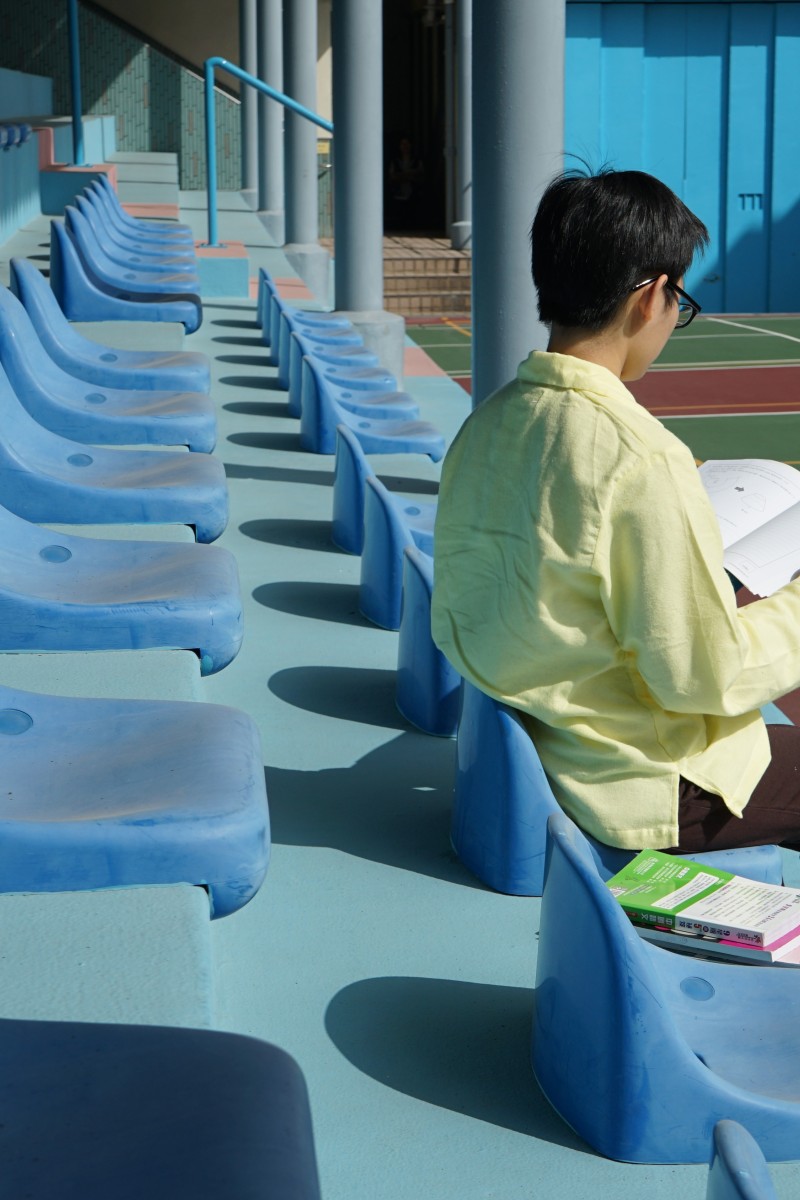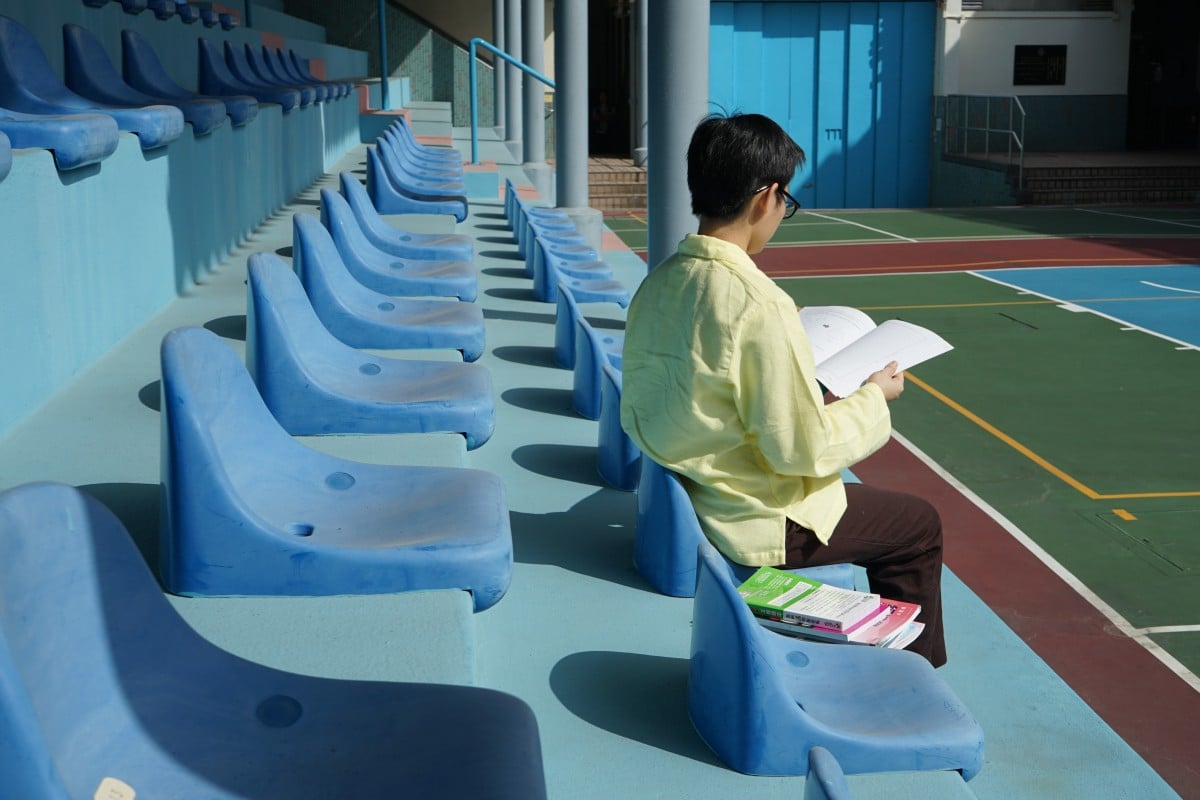
‘I hope they can see that I’ve transformed’: Hong Kong’s first female inmate to be admitted to UGC-funded university programme
Ah Fan (not her real name) was arrested for selling drugs when she was 15 years old
 Ah Fan was arrested for dealing drugs when she was 15 years old.
Ah Fan was arrested for dealing drugs when she was 15 years old.Just like every other day for the past few years, 20-year-old Ah Fan woke up at Lai King Correctional Institution at 6am. But this Christmas Eve is extra special. Today marks her last day in custody.
After walking out the institution’s doors, she plans to give her parents a warm embrace and feast on the food she’s missed such as hash browns and rice noodles.
This year Ah Fan (not her real name) became the first female inmate in Hong Kong to be admitted to a University Grants Committee-funded undergraduate programme via the Jupas system.
“When the teachers and staff told me that I had been accepted into university, I asked them ‘Is this true?’ about 10 times to make sure I heard it right,” she recalled.
Growing Pains: How to stand up for yourself - assertiveness is a skill that can be learned
“I never imagined I’d be able to study at university, even though I’d applied for it ... It felt like a dream come true, and that my hard work all these years had paid off.”
Before she was arrested, Ah Fan, who was 15 at the time, was a student at a band-two local school. The then Form Three student admitted that studying was not her strong suit.
“For me, studying entailed strenuous effort, and I only did it because my family and friends asked me to. I did not enjoy it,” she said.
Overwhelmed by academic pressure, Ah Fan tried to share her thoughts with her peers. Yet they didn’t seems to sympathise.
“Everyone was so concerned about their own academic results that they buried themselves in their study, [and showed little concerns for others’ struggles],” she explains.
Ah Fan, who lived with her father, said she would often come home to an empty flat. After her parents divorced, she had lost touch with her mother, and didn’t talk much with her father, as he was very busy with work and taking care of the house. With little support from her family and peers at school, Ah Fan decided to reconnect with her old primary school friends. Little did she know, they would only make things worse for her.
She told them about her struggles with her school work and they told her that studying wouldn’t guarantee a university degree anyway. So she shouldn’t worry about school, just have fun while she’s young, they said.
“Since I’d always thought my chance of entering university was slim – as I didn’t come from a [top-band] school, nor was I a very bright student – I took their word for it.”
Ah Fan began skipping school and started taking drugs. She and her primary school friends “lingered in internet cafes and took drugs to numb [themselves] out”, she said, adding that she eventually ran out of money so she followed in her friends’ footsteps and began to sell drugs.
How to spot signs of drug abuse and how to offer help in a supportive way
This lasted for more than six months until she got caught and was arrested.
“I didn’t know what was happening in the moment I was taken away. I wasn’t sure why I was arrested and what I should do,” she said.
Ah Fan said she only realised and felt remorse for her wrongdoings after she had been detained and was asked to prepare for her sentence hearing.
“I tried writing letters to my [primary school friends] for help, but never heard back from them. Then I realised they had probably taken advantage of me,” she said.
Though her friends were no longer at her side, Ah Fan said she grew closer to her parents during her imprisonment.
“My mother got back in touch with me by writing letters and visiting me ... my dad now also chats with me more frequently. We’ve started to understand each other more and are maintaining a good relationship,” she said, adding that they are the reason she wanted to start studying again.
“When my parents came to visit me, I could tell they were disappointed with me. All they were hoping for was that I wouldn’t step on the same rake again. They had no future expectations for me,” said Ah Fan.
“But I hope they can see that I’ve transformed, that I have graduated from secondary school by the time I’m released from custody.”
She recalls telling her parents that studying for the HKDSE exam at the Correctional Institution was an option.
“Seeing a twinkle in their eyes, I wanted to do my best and work hard [for the exam].”
In addition to wanting to make her parents proud, what’s also kept her motivation high was an extremely supportive learning environment.
“The study atmosphere here is very different, compared to what I had experienced in school,” Ah Fan said.
“When I would revise with [my other three classmates], we’d exchange study tips and ... help each other improve our weaknesses.”
Growing Pains: take back control - don’t let anxiety rule your life - it can be done
While they were revising, the staff at the institution would frequently pop by to give them words of encouragement, such as “add oil” and “you can do it!”
“They would also tell me it’s okay to take a rest when I am very stressed,” she said. “With so many people backing me up ... and prioritising my well-being over my academic performance, they became my source of motivation, and I gradually started to enjoy learning.”
These small but continuous acts of encouragement are very “heart-warming,” Ah Fan says, knowing that the staff have no obligations to do it.
“When we weren’t able to complete our assignments in time, our teachers would [also] check if we were struggling to finish it, or if the amount given to us was too much, then make adjustments accordingly,” she adds.
Ah Fan said preparing for the DSE was no easy ride, especially with no access to the internet. She said there wasn’t enough time to memorise everything she needed to know for the exams.
“While other DSE candidates have as much as three years to familiarise themselves with the 12 prescribed Chinese classical texts, we only had nine months,” she explains.
But after two years of hard work and retaking the exams for most subjects, she obtained a total score of 21 in six subjects last year, and became the best-performing DSE candidate in the history of Hong Kong’s young women in custody.
“I hope I can use my own experiences to show teens who are lost – or those who’ve committed crimes – that they are capable of changing their lives,” says the aspiring social worker.
“I wish to be their companion, show them empathy, and teach them what they can do to get back on track.
